Dead Moon: An Interview with Toody Cole
45 miles south of Portland, Oregon lies the five-acre farm where punk rock legendary duo Toody and Fred Cole built their two-story home full of punk memorabilia, old guitars, VHS and record collections, and Dead Moon merch.
During the pinnacle of punk, before DIY culture even had a name, Dead Moon was shaping the scene with their innovative blend of genres and musicianship. Since the late ’70s, Toody Cole and her husband Fred have been producing their own albums, running their own record label, booking their own tours, and at one point they even ran their own music shop. Since Dead Moon’s breakup in 2006, the two have continued playing as Pierced Arrows and recently announced a resurgence of Dead Moon concerts. Toody was kind enough to invite us out to their home to tell us tales of the road, and also talk business. View the full photo gallery here.
She Shreds: Portland has this reputation for being so progressive these days. What was it like to grow up there in the ’60s?
Toody Cole: It was pretty oppressive, as you can imagine. The expectations were very low. Luckily, I was raised Catholic and went to an all-girl high school. It was a great format, given the time, because you didn’t have the pressures of not being able to speak your opinions or your mind without everyone looking at you like, “Huh?” I only realized that after the beginning of my junior year, when I moved out to Centennial High school, out in that neck of the woods. I could only handle that for about two weeks. I was in all the advanced classes, but everything was still like [hums a wacky circus melody]. It was driving me nuts. Every time you’d speak up and raise your hand, everybody would turn around and go, “Girls don’t do that. You’re not supposed to be smart. You’re supposed to be pretty.” But I was such a tomboy. I never got into the makeup, girly girl thing.
When did music start to become a part of your life?
I learned a little bit of piano in late grade school, early high school. Never did anything with it. Got a guitar when Joan Baez was big. That was happening when I was about 16. Naturally, it was a classical guitar. It never quite worked out for me. Around that time, I met Fred [Cole]. We got together, started having kids… I didn’t really start playing until I was right around 30. At that point, Fred had pretty much had it with playing with real musicians. He was just learning how to play electric guitar himself, whereas he had just been lead singing before that. So, he taught me how to play bass. That actually was Fred’s first instrument, when he was growing up in Vegas. At that point we linked up with Rod Rat, who had never played drums before either, and that’s when we started the Rats. We were just playing super simple stuff. I just loved the power of bass. Slowly, as what Fred was doing on guitar started getting more complicated, what I was doing on bass did also. He’s more of a composer than just a songwriter. He can pretty much hear all the bass lines in his head. Ninety percent of anything I play, he’s come up with first. He has a great ear for matching up guitar and bass parts that complement each other.
What was setting up a show like for a punk band at the time?
Back then, a lot of people in the scene, whether it was Fred or whoever else, would go out and solicit clubs. They’d just try to talk them into trying a show and seeing what would happen. It’s always been difficult, but back then especially, because there weren’t a lot of venues that were willing to let the bands in. There were a few shows at Portland State [University]. Most of the other ones, Greg Sage (of the Wipers) went out and lined up. But it wasn’t a situation like you have now, where someone will call you up and go, “Hey, would you like to play Ash Street on such and such….” At this point, everybody’s got something up on the net, which is cool for beginning bands. For someone to be able to check you out, hear one of your songs, look at your Facebook page…. Luckily in Portland, there are enough different-sized venues. Whether you’re completely starting out at a super small club or working your way up to a slightly bigger club, you can set something up. I think it’s really important for musicians. It’s almost like an apprenticeship program. Unfortunately, a lot of towns just don’t have that. It really is necessary, because you need to have that year and a half on stage together, just to keep the band together. So you can get tight and earn your dues, to get ready for something else. It really takes that long time for it to happen.
How long were the Rats around?
We did the Rats for about eight years, I think. We got kinda bored and frustrated with the punk rock thing, so we started doing country for a while. That’s when Fred started doing the Range Rats. I’d come up and guest sing on a few of their songs. That’s when we cut that single of “Coming on Strong” and “I’d Rather be Your Lover.” We did the Range Rats for about a year and a half or so. Then we got kinda bored with the country thing and wanted to go back to something that had some power behind it. Basically, that’s when we got together with Andrew [Loomis] and started Dead Moon.
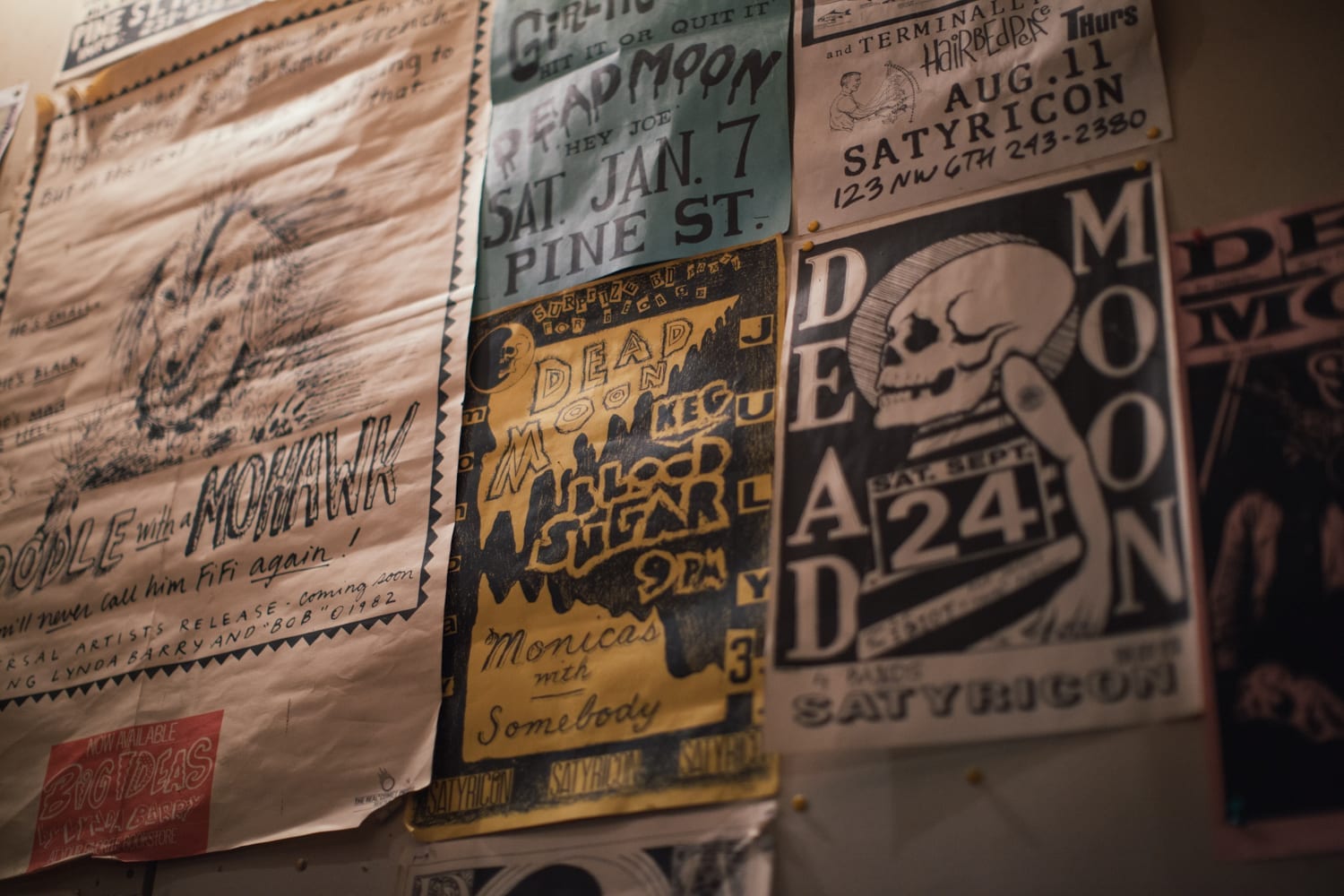
Dead Moon was a band for nearly 20 years. That’s such a long time! Have you guys developed a psychic connection?
Oh yeah! There’s always been something there, where you know exactly what someone’s thinking, or you say shit at exactly the same time. Fred and I do that all the time. I can actually think of different things, and he’ll do them. If I think hard enough, “Uh, roll down your window, it’s hot in here,” he’ll do it.
On stage, you guys rarely talk to each other, but you’re still communicating.
Yeah, It’s the same with any band, and even to a certain extent with Pierced Arrows. It used to blow people away, in Dead Moon especially, because I always play with my eyes closed 90 percent of the time. We play so tight, and Andrew is all down like this [air drums], and I’m swinging my bass neck, almost standing behind him. And friends would go, “You would not believe how many near-hits! It’s like this ballet I’m watching all night long!” You do it without even realizing it. It’s like… you’re conscious of each others’ space. It’s pretty cool. It’s been one of the most amazing things to me, to be so lucky to be in several bands for the length of time that it takes for you to really get tight between the people in the band. Not just on the musical end of it. That’s why we say that with any band we’ve been in a long time, there’s a sense of family, you know? That’s all part of it. It kinda needs to be part of it for me and Fred [laughs].
You guys have always been independent musicians. But you’ve also been independent business owners as well. What was running a music shop like?
I mean, we’ve always been workaholics from hell. Basically, back when the kids were at home, we would pretty much get up, get the kids off to school, go into Whizeagle’s, work there till six, come home, fix them dinner, go back in [to the store] two or three times a week and rehearse, go to sleep, get up, and start all over the next day.
How did Whizeagle’s fit into the music scene at the time?
[Cole scans the room, where several unusual-looking guitars hang on the wall.] As you can tell, Fred likes fixing guitars up. By screwing around, he learned how to repair guitars. In the shop, he’d just slap stuff together to get people through for what they could afford. That was when the punk rock thing was really happening and just coming into its own. The Wipers had just gotten together, the Neo Boys, Sado-Nation…. They were all cropping up at the same time, playing a lot of shows. We were basically the one and only music store that had super cheap instruments. It was the one place where everyone could meet and not get shit for going in the back and banging away on stuff, you know, makin’ noise, all the rest of it. So it became a really big hang out. And even Tombstone [record label founded by the Coles], was that for a lot of high school kids from Oregon City and Gladstone. There are still a lot of them that keep in touch and come to gigs! We call them Whizeagle and Tombstone brats!
What would you say are some of the more challenging things about being an independent musician, as far as running your own label and setting up your own tours?
The coordination of everything is kinda the biggest hassle right now, as far as the label, the booking, and all the rest of it goes. Right now, I’m juggling three record projects, three bands, and several tours. There have been independent filmmakers that want to use Fred’s songs in their projects, so dealing with all the legalities of all that, contracts and negotiation fees…. It’s become a lot more complicated for me, because I deal with all the paperwork, and the taxes, and that end of it. He’s the creative force, and I’m the stable business partner who keeps it all together! [Laughs] Other than that, it’s a lot of fun. We go through long spells, where there’s not that much happening… But then, you know, Murphy’s law. Feast or famine. When shit’s happening, everything’s happening. All at the same time, with the same deadline. That’s just the way it is.
And what are the advantages of running everything independently?
It’s that you’ve got free range to do what you want with it. That’s always been a big thing. That’s why we got into having our own business. Fred used to have to work for temp labor, putting his hair up in a hat just to get hired. You guys forget how difficult it used to be, just to be weird! You have the freedom as a musician to not have to go, “Gee, would it be okay if I take off next Friday?” Because you’d just get fired. At some point, we said, “We should just create our own thing.” We’re both control freaks, so just to have the control is number one. It’s also a cost-saving thing as well, to have your own label. To just be able to go direct to the source for the mastering and the pressing. To not have to go through somebody else who would charge you for the time and labor to do it for you. We’ve always been hands-on. When we were little, we were the kids who had the lemonade stands and put the plays on in the backyard for a penny, organized the parades, all the crazy shit kids did in the ’50s. I started working at the age of nine, nine and a half, in the beans and berry fields, babysitting, whatever…. It’s pretty much been engraved in our psyche, since the time both of us were kids. A lot of our work ethic we learned from our folks. I grew up in a big enough family—there were seven of us—to where it was like, “Hey, you either earn your own money, or you don’t get what you want!” [Laughter]
You guys have been touring for about as long as I’ve been alive. How do you maintain the moxie?
A lot of it comes naturally. A lot of it is just learning, after years of touring, how to pace yourself and not waste a lot of nervous energy. But it’s weird, in a way: Fred and I can stay up when we go out to gamble at casinos… we can stay up for 18 hours, 36 hours straight! And we’ve always been able to do that on tour. He does all the driving, and I stay awake to keep him company. We’re natural night owls. We just keep going until it’s done. We’ve always come up to the challenge of raising the bar. If one tour is four weeks, the next one has to be five weeks. The last Dead Moon tour was like 60 gigs. You ask anybody who’s ever been on tour, that’s a shit load.
Jesus. How did you stay sane?
I don’t know! [laughs] I like a challenge.
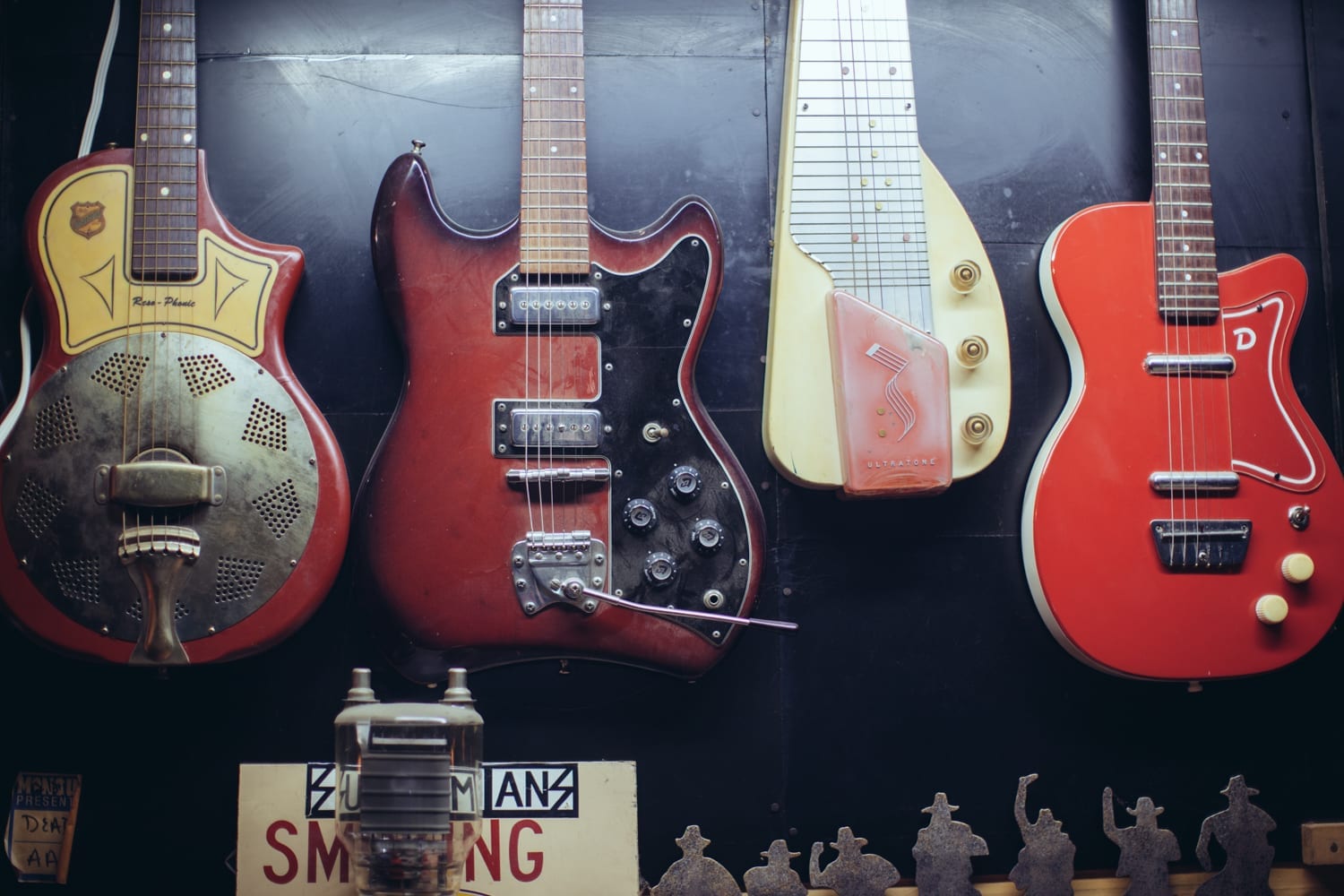
Let’s talk about gear! Tell us about the bass you play.
The Vox bass that I’m playing now…. We got it some place in Nebraska. We used to do road trips just to buy old, weird instruments. Then, we’d bring all the shit back to Whizeagle’s and resell it. Back in the Rats, I played a Vox rip-off, an old Del Ray. I played a Mosrite for a while, but that got [stolen] out of the back of the Satyricon, or maybe it was the Long Goodbye [The Satyricon and Long Goodbye are now-extinct Portland clubs] But I got this Vox right before we started Dead Moon. I’ve been using it ever since.
You two always seem to have your own way of doing things. Do you believe in chromatic tuners?
We use them all the time, now. Before, we used to do the old, “Gimme an E” [makes sound of a string being adjusted]. Fred used to just pick up the phone and tune to the dial tone, because the dial tone is B-flat! That’s how they did it back then!
How do you go about figuring out riffs?
To me, it’s like learning a language. You learn to say hello, goodbye, please, thank you, and how to order shit off a menu… And I’m a visual learner, so I’ve pretty much learned everything without knowing what it really is on the fretboard. I just look at patterns. I’m actually left handed. You won’t see me back-pick a lot, because I can’t do it! I down-pick ninety percent of everything I play. It gives a different attack to it, anyway. Makes it way heavier.
How long do you think it took to conjure up the commanding stage presence that you have today?
It really took until we were in Dead Moon. Especially after that first European tour. These people were just in awe… sometimes you just kinda live up to people’s expectations. That’s really where I finally had spent enough time, gotten a bit older, and gotten over being so incredibly shy, and started to really feel comfortable on stage. I started having that confidence that I’m so happy to see you guys acquire at a younger age. More so than the women of my generation. It took a long time.
There used to be a big thing on the West Coast called Garage Shock that Dave Crider from Estrus Records used to have every year in Bellingham, Washington. People used to come from all over the United States, all over the world. When we went up there, it might have been one of the first times Dead Moon played. There were a bunch of these other bands—naturally, all guy bands—sitting around. We were one of the headliners. And, of course, they hadn’t heard of us. At that point, nobody really had. When I walked by, one of these guys goes, “Oh, we’re so gonna blow these guys. They’ve got a girl in the band!” I don’t get mad that easily, but man, I was so fucking pissed. “Yeah, we’ll see, dudes. We’ll see who blows who off the stage, asshole.” It wound up being one of the best gigs we ever did! [laughs] It’s a great motivator, when people underestimate you.
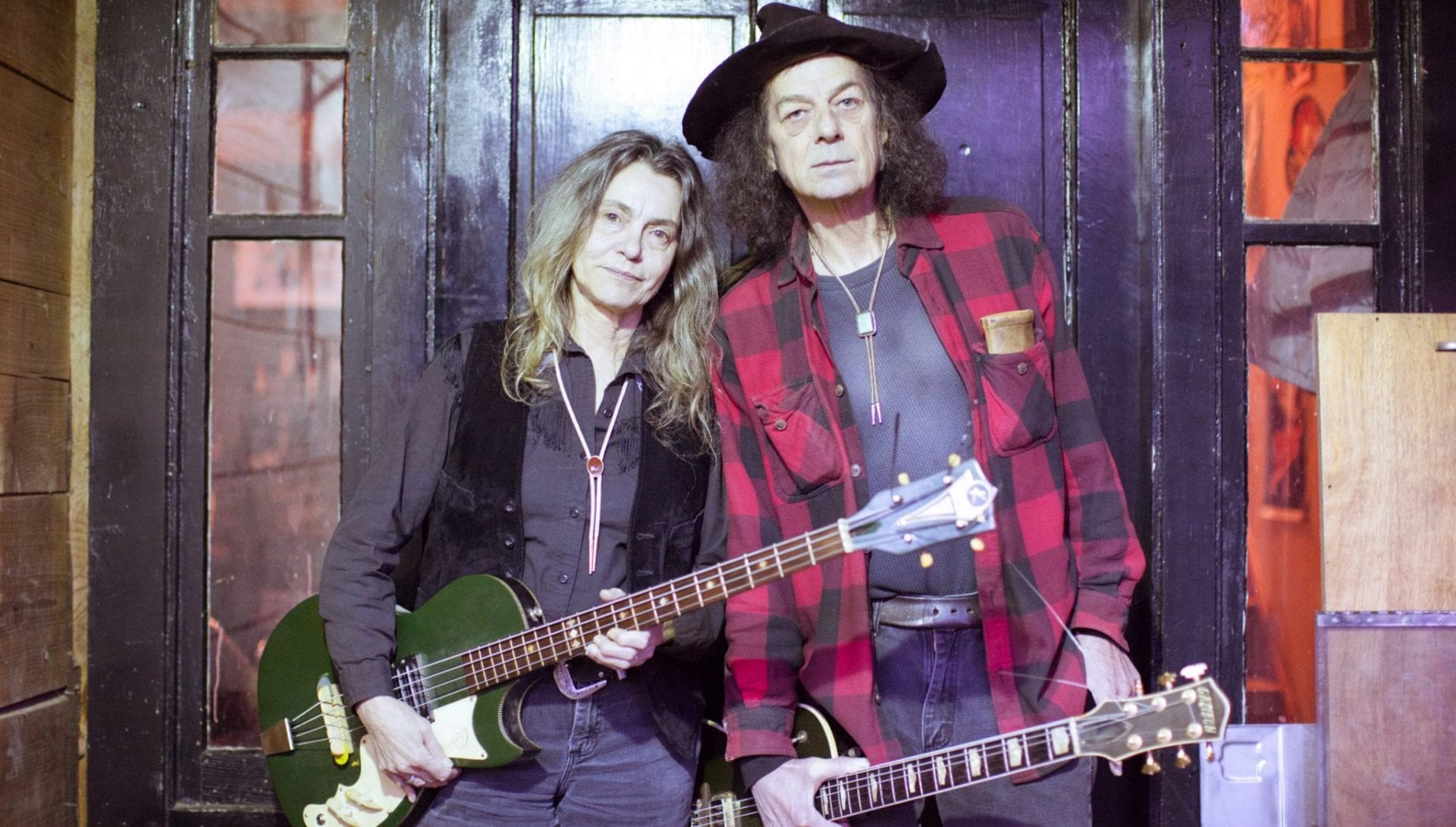

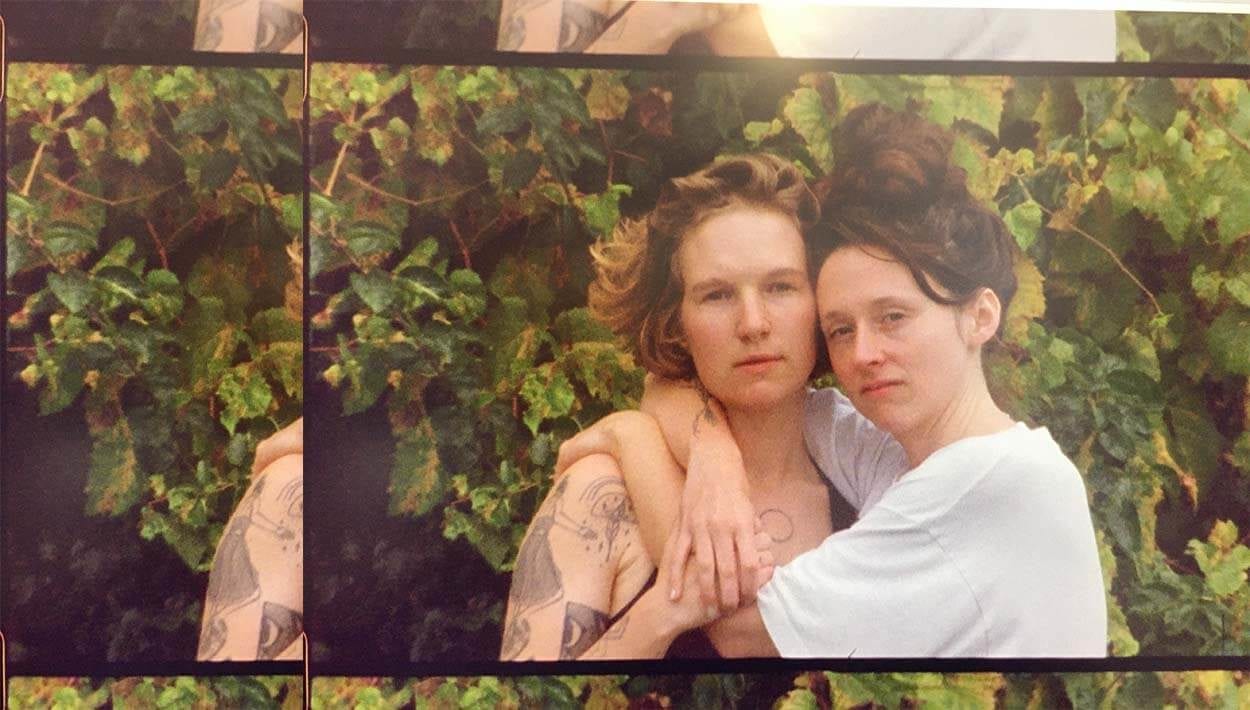
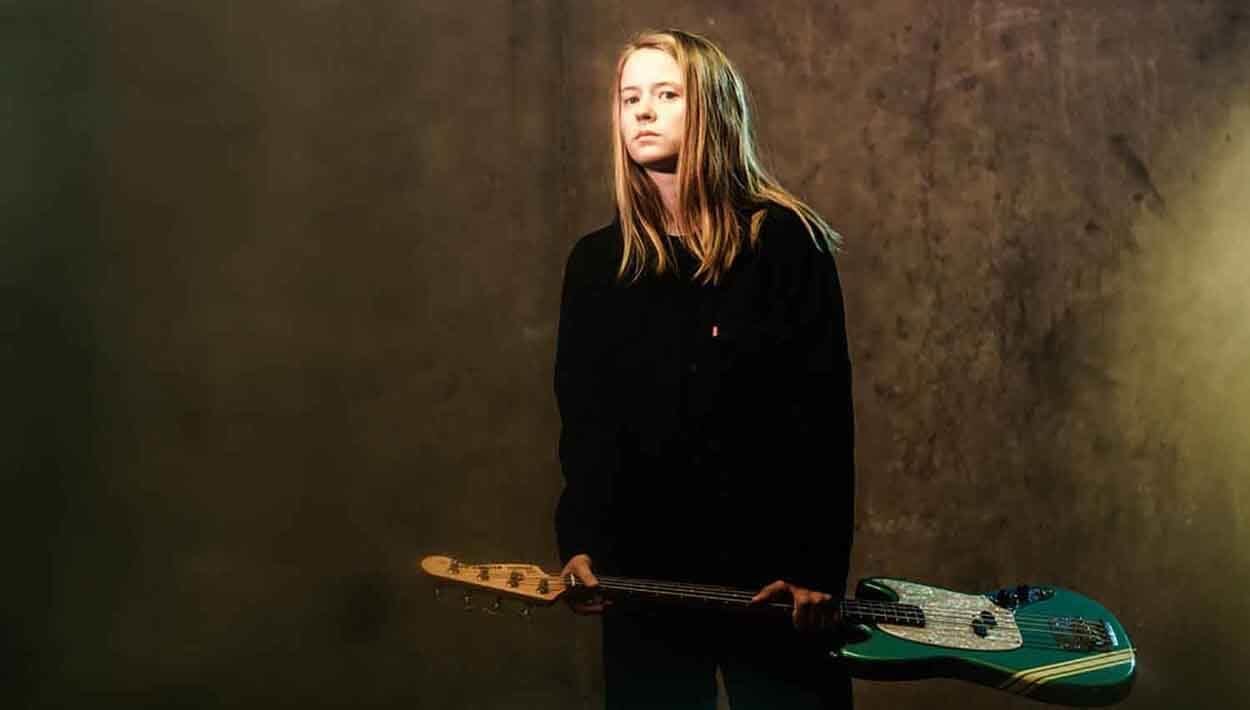
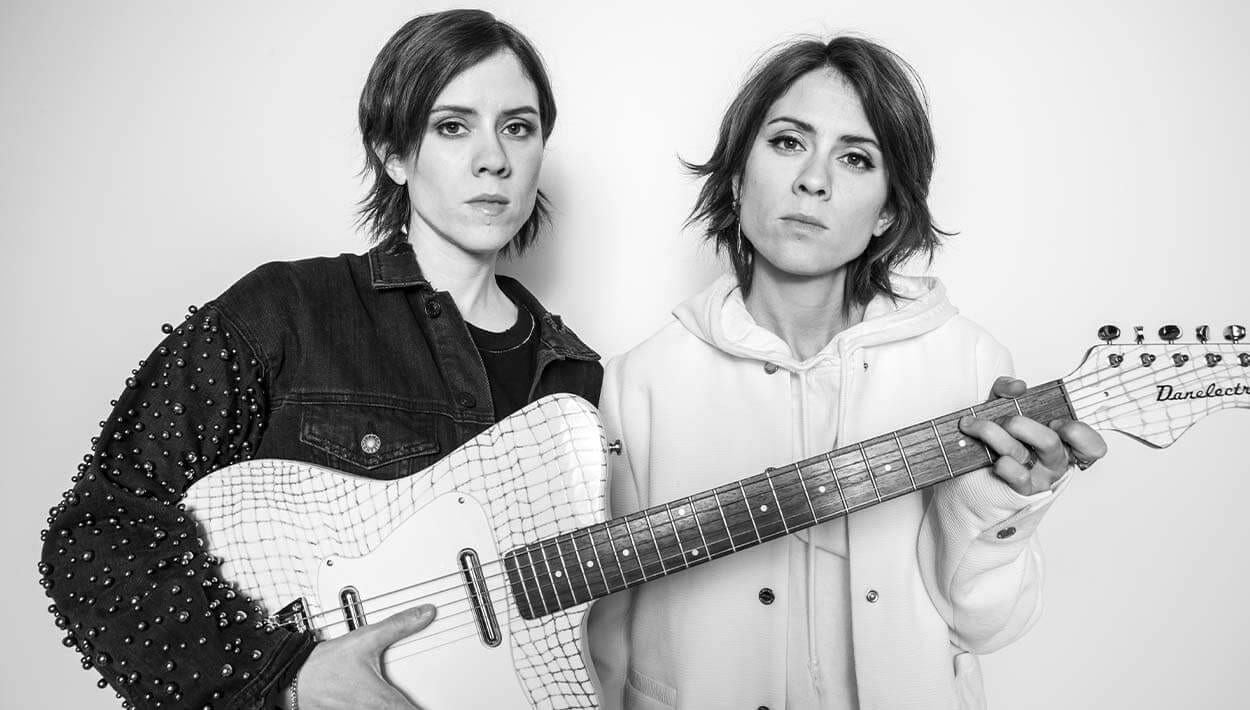
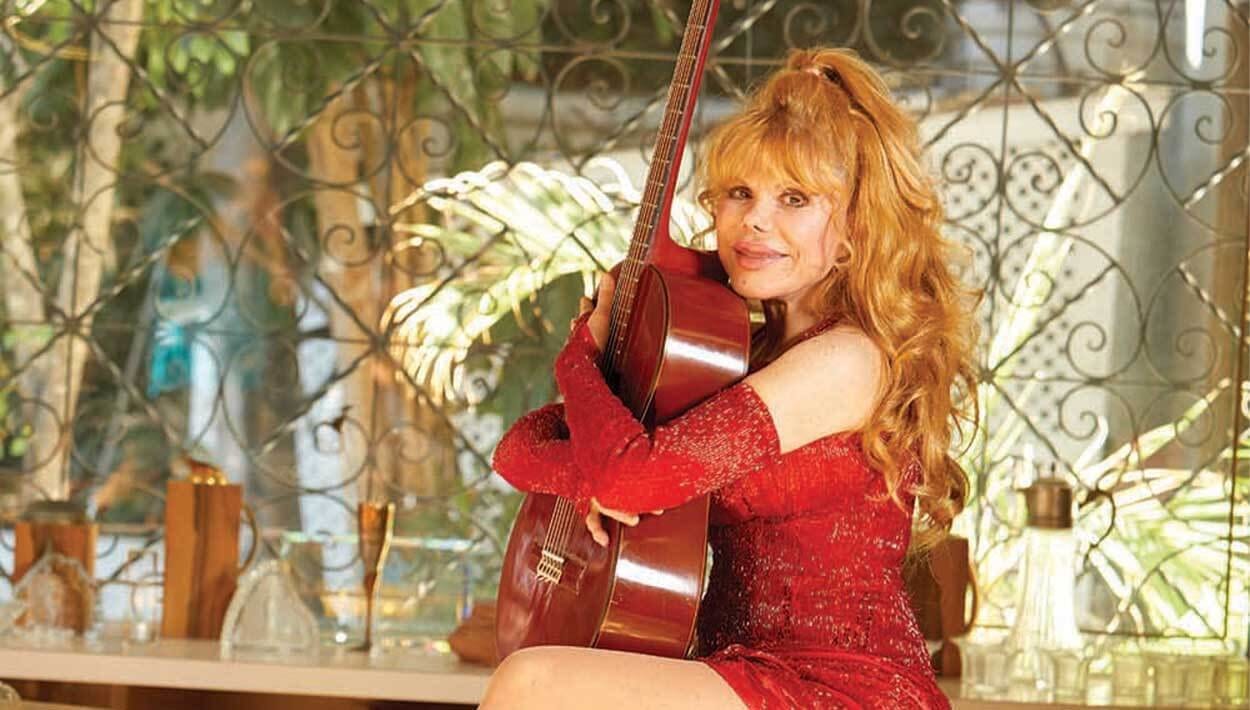
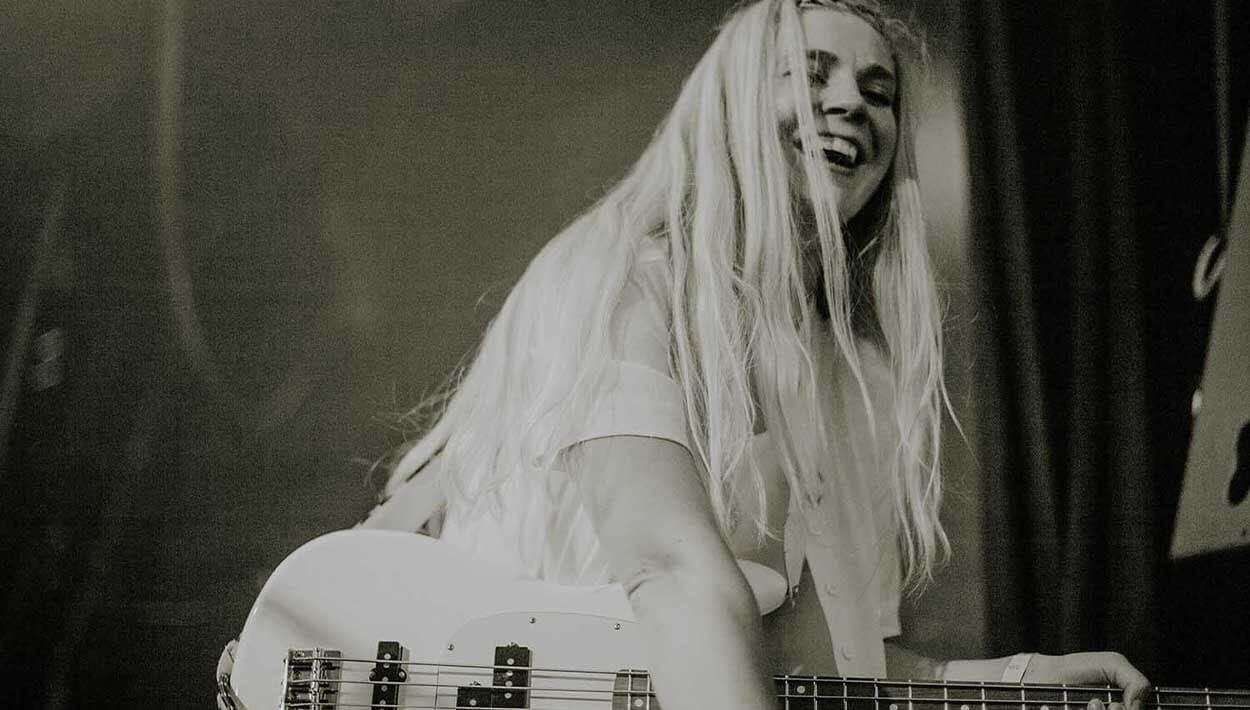
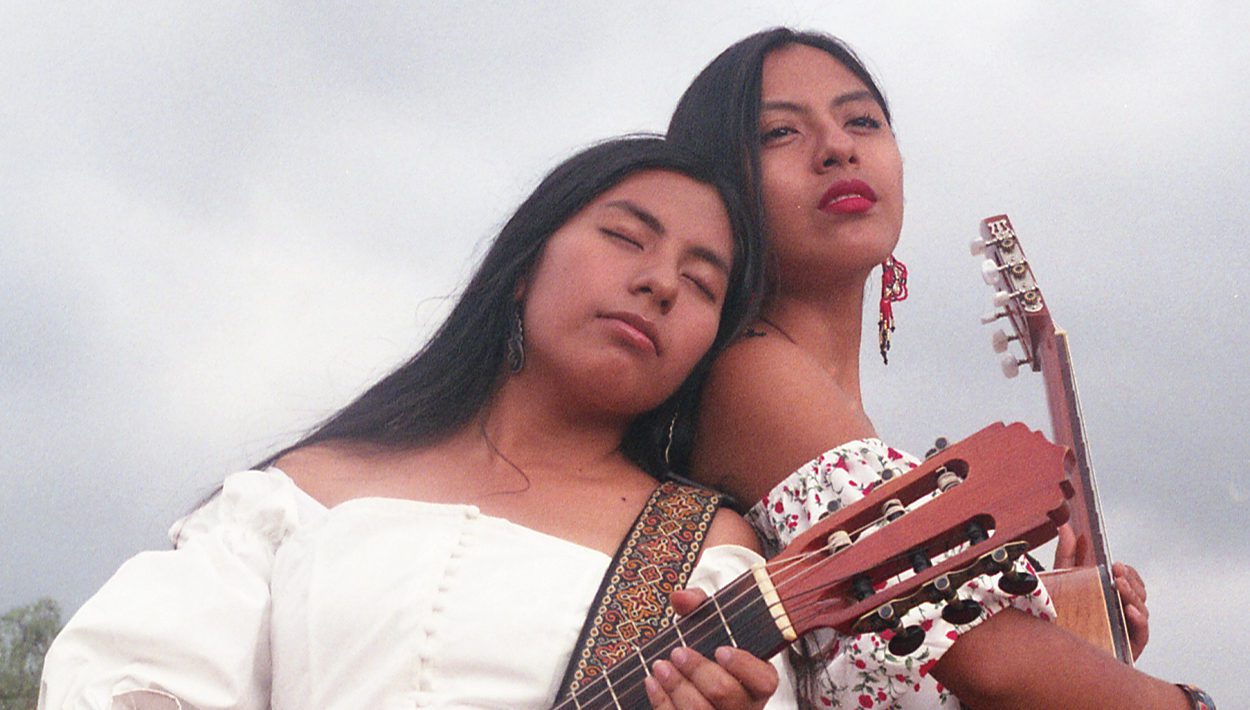
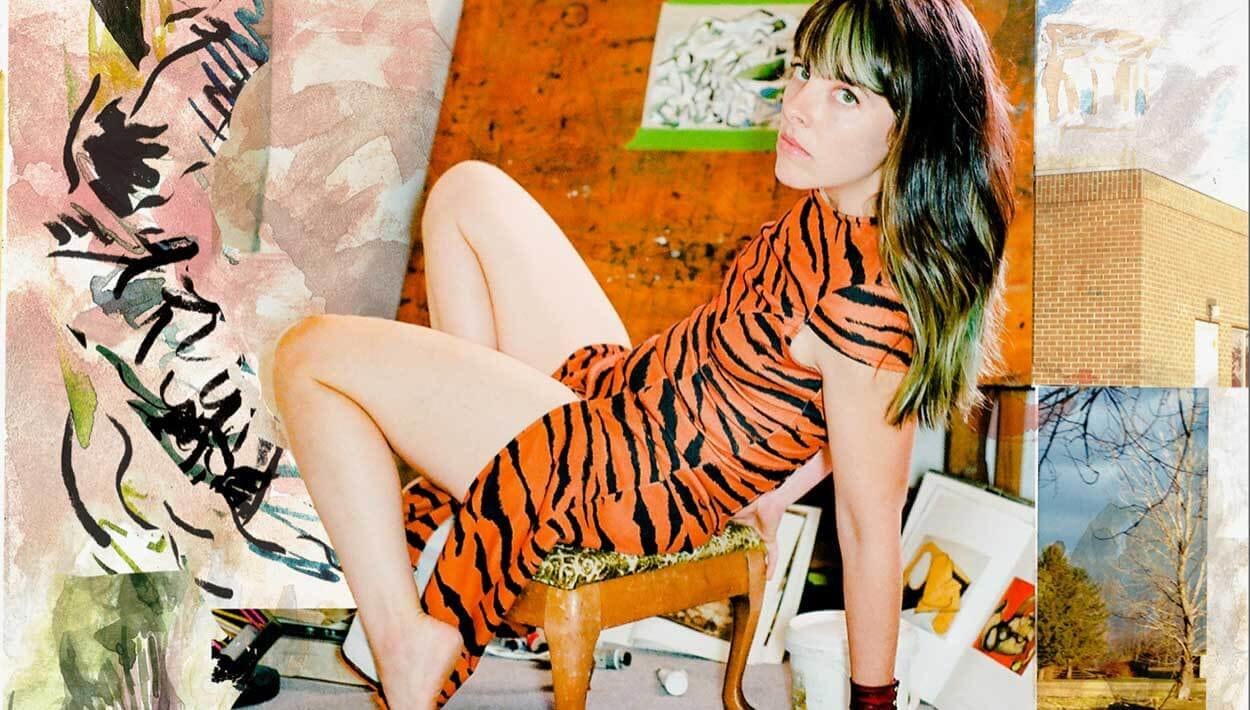
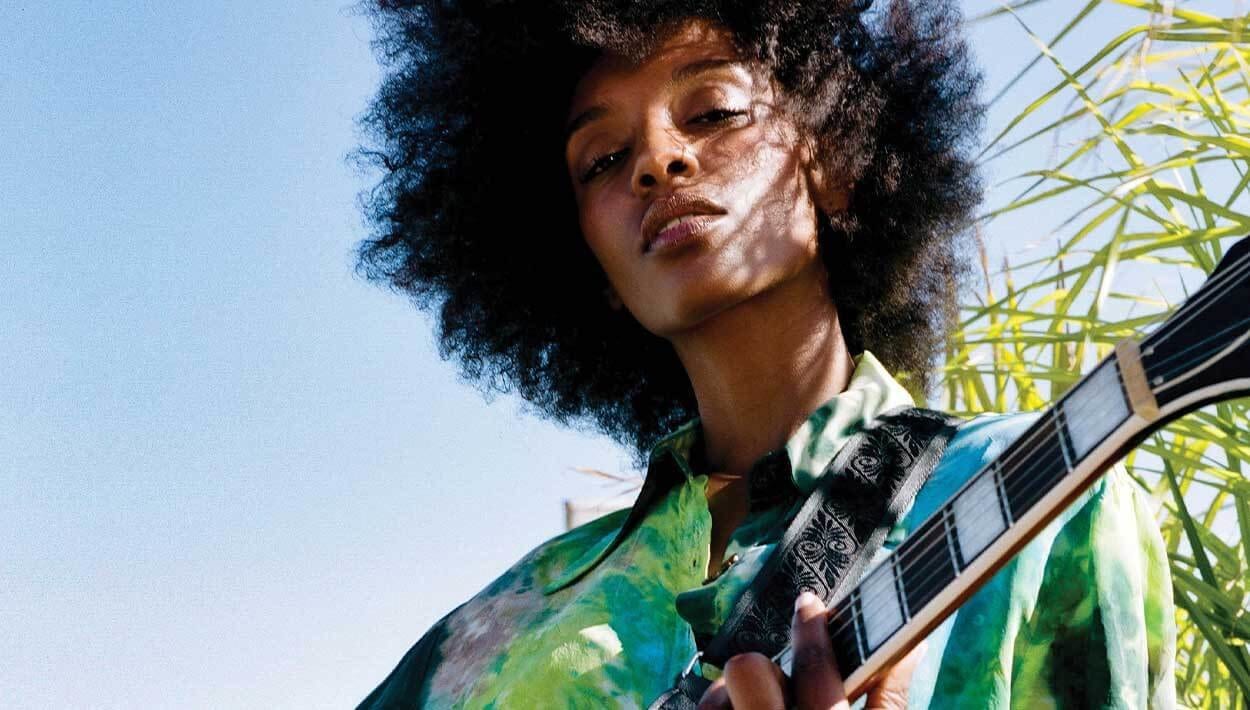
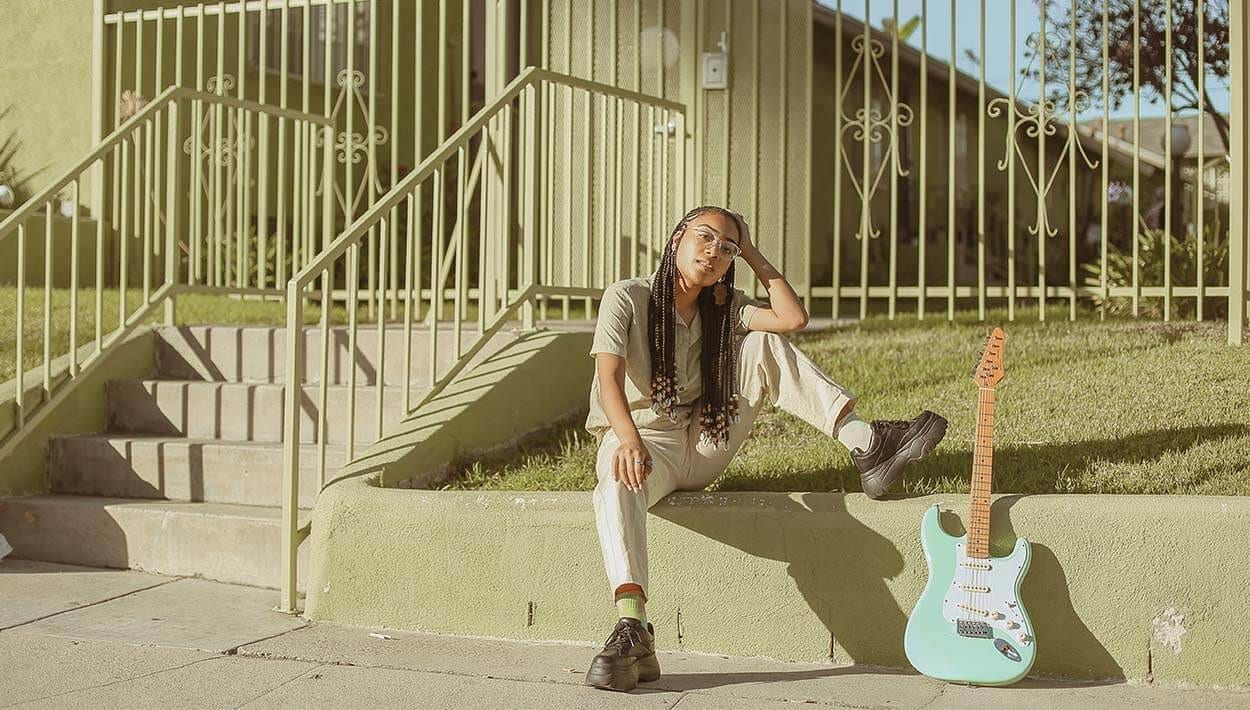
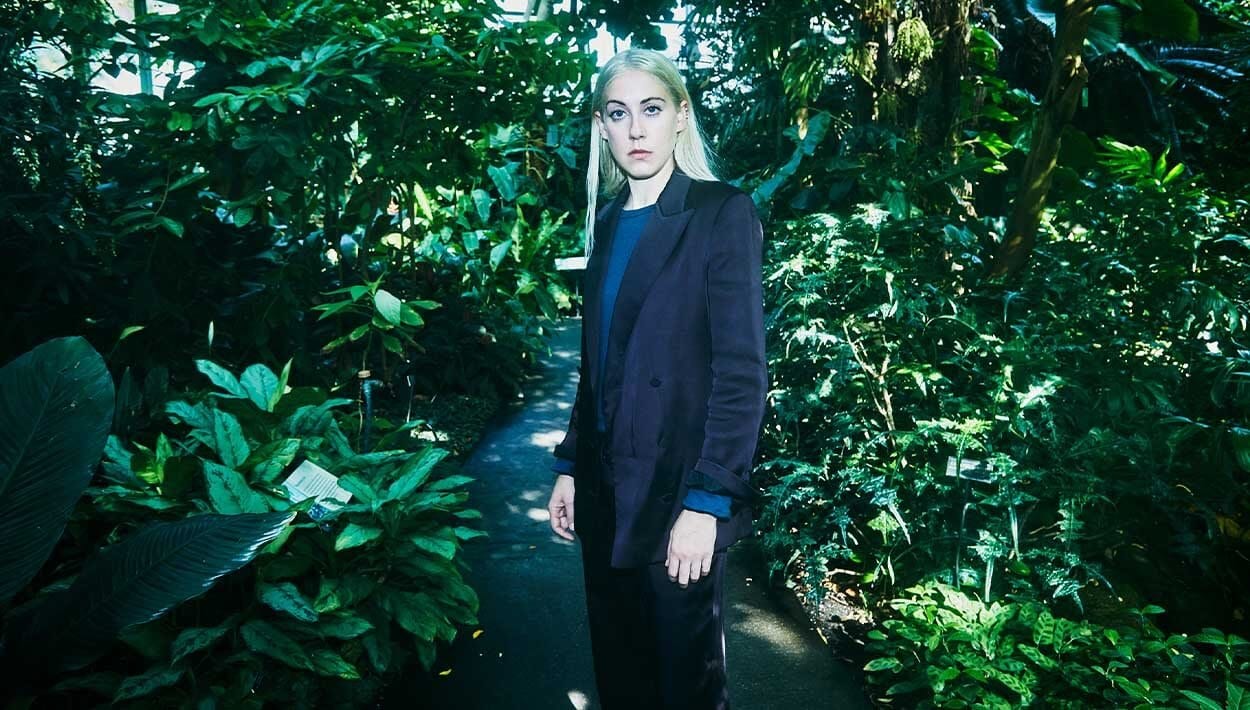


Comments
[…] Bumbershoot festival and was taken to the hospital. He’s 67 years old. In February, 2014, Callie Danger spoke with bassist Toody in She Shreds magazine about making music for a living, keeping control of their art, and keeping […]
Pingback by The Hard Life and High Times of Independent Musicians : Longreads Blog on October 3, 2015 at 5:00 pm[…] annual Bumbershoot festival and was taken to the hospital. He’s 67 years old. In February, 2014, Callie Danger spoke with bassist Toody in She Shreds magazine about making music for a living, keeping control of their art, and keeping […]
Pingback by The Hard Life and High Times of Independent Musicians | Maybelle Chan on October 3, 2015 at 5:31 pm[…] Bumbershoot festival and was taken to the hospital. He’s 67 years old. In February, 2014, Callie Danger spoke with bassist Toody in She Shreds magazine about making music for a living, keeping control of their art, and keeping […]
Pingback by The Hard Life and High Times of Independent Musicians – Long Form on October 3, 2015 at 6:32 pmI love your blog. Please can you visit mine and leave a comment – it’s for a school project and I’d love your advice.
Comment by Zoe on October 4, 2015 at 2:29 amRather that I’ve read this interview and feel happy I did. Though not many people will get the stuff I think you’ll do well chnace to cucceed. Not before or may’ve been by accidental incident I mentiomeaned there is listening to music all day and nobody listens with. That way going West in evites for funky arguments I succeeded to translate the pictures into sounds and music into opacious screen repro images, people telling “he’s lunatic” – so I’ll try to drop some of my collisions to you anyway fitting best, sure only a thatcher moon devotee will write to make ascertained the public. Man or woman, reverting both into all about the kind figuraged, believe us: there is a whole way to wind up strings for. Our life means there is a beat of beauty’s night making a leveth aloof to any heritage gathered into the grave illness ‘my care&sorry-soa peaks’ changing good socials into this what we save for the getty deanery + etsy com in this my story stingy song “the artist told the barber you – uh?”.
# great Barbra, she’s sad. = “oh yes…my friends….eh…Maliboosts?”.
Comment by clen on October 4, 2015 at 5:52 amwritten in ionic Holland at stage 5/2nd – 14.40 h. Amst.Time/
“we wonder what the silvering stems of birches all around will shine into my eyes seeing me going over ‘nd over this road once setting my footsteps on the only one way to a new and smiling moon”
[email protected] #NIW – redaction 2 message applied
– text adjustment admitted without license of the author –
= greeting: the once called Clement – a guy of Tropic Sky –
– clembur – oo – ‘o’say 66 now calls ages don’t owe me woolen owls’ –
– RiETHOff promos – McSeanclen –
– reader advise “Little Dorrit” – Ch.Dickens – a feuilleton
_______________________________________________04 10
What a Great Post!
https://soundcloud.com/downtempomusic/psychedelic-downtempo-music-masterpieces
Comment by Arousing music on January 27, 2017 at 8:48 am[…] the record in full below, and for more about Dead Moon, read our in-depth interview with Toody Cole here. What a Way to See the Old Girl Go is available […]
Pingback by She Shreds Magazine - Premiere: "What a Way to See the Old Girl Go," by Dead Moon on April 21, 2017 at 9:20 amHi Toody …I’m sad to learn of Freds passing today July 2023 . He sold me my first guitar in 1981 while I was at your old shop “Capt. Whizeagle”… I think he gave me the best deal on a electric Hondo explorer $75 bucks . Thank you and Fred for the great memories .
Sincerely; Erik Tucker
Comment by Erik C. Tucker on July 22, 2023 at 3:22 pm